Introduction
As dog owners, we all want our beloved companions to live long, happy, and healthy lives. However, like humans, dogs can experience cognitive decline as they age. This condition, known as cognitive dysfunction syndrome (CDS), is similar to Alzheimer’s disease in humans and affects a significant number of senior dogs. The good news? Nutrition plays a vital role in managing and even slowing down the progression of cognitive dysfunction. By choosing the best dog food for cognitive dysfunction, along with supplements like omega-3 fatty acids, you can make a meaningful difference in your dog’s quality of life.
This article explores everything you need to know about supporting your senior dog’s brain health, including tips, product recommendations, and actionable advice to help your furry friend thrive. For more resources on premium nutrition and supplements, visit Valuedogfood.com.
What Is Cognitive Dysfunction Syndrome in Dogs?

Before diving into the solutions, let’s break down what cognitive dysfunction syndrome is and how it impacts your dog. Imagine waking up one day and realizing your once energetic pup seems confused or disoriented. They might forget their favorite walking route, struggle to recognize familiar faces, or even have trouble finding their way around the house. These behaviors are common signs of cognitive dysfunction syndrome, a neurological condition that affects older dogs.
According to veterinarians, CDS occurs when there’s a decline in brain function due to aging. It’s estimated that 28% of dogs aged 11-12 years old show signs of cognitive decline, and this percentage increases to 68% in dogs over 15 years old. While it’s heartbreaking to see your dog struggling, early intervention—through diet, supplements, and mental stimulation—can make a world of difference.
Why Nutrition Matters for Cognitive Health

When it comes to managing cognitive dysfunction, nutrition is a game-changer. Just as certain foods can boost brain health in humans, specific nutrients can support your dog’s cognitive function. For instance:
- Antioxidants: These powerful compounds help combat oxidative stress, which damages brain cells over time.
- Omega-3 fatty acids: Found in fish oil, these fats are essential for maintaining healthy brain function.
- Medium-chain triglycerides (MCTs): Derived from coconut oil, MCTs provide an alternative energy source for the brain.
- Vitamins E and C: These vitamins protect brain cells from damage caused by free radicals.
A diet rich in these nutrients can slow cognitive decline and improve your dog’s quality of life. But with so many options on the market, how do you choose the right food? Let’s dive into some of the top picks.
Top Picks for the Best Dog Food for Cognitive Dysfunction
1. Hill’s Prescription Diet b/d Canine
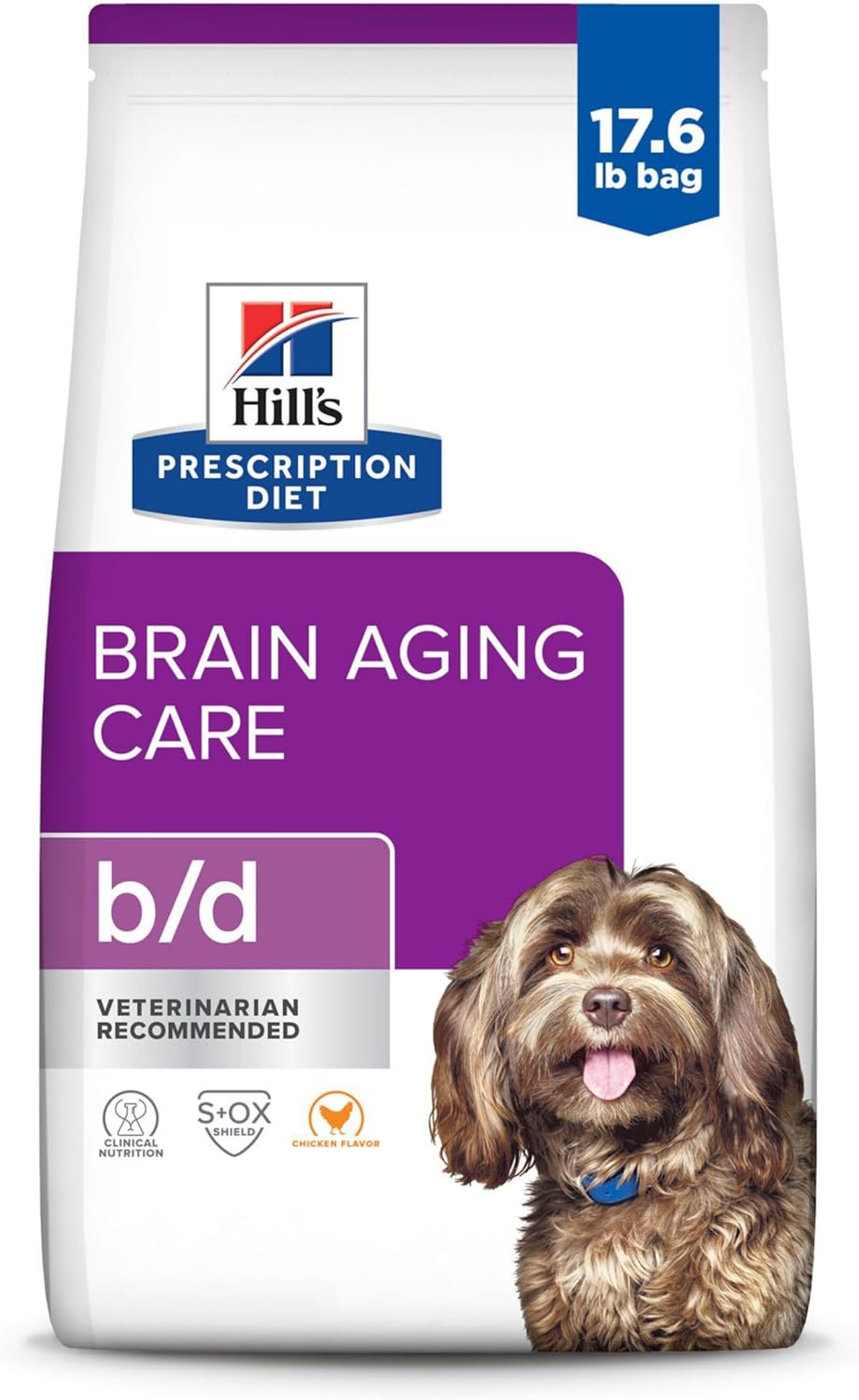
If you’re looking for a scientifically formulated option, Hill’s Prescription Diet b/d Canine is a standout choice. This food is specifically designed to support brain health in senior dogs. It contains a blend of antioxidants, omega-3 fatty acids, and other nutrients that promote cognitive function.
One customer shared her story about Max, a 13-year-old Golden Retriever who was showing signs of confusion and lethargy. After switching to Hill’s b/d, she noticed a dramatic improvement in his alertness and overall mood. “It’s like he’s gone back in time,” she said. You can learn more about this product here.
2. Purina Pro Plan Bright Mind Adult 7+
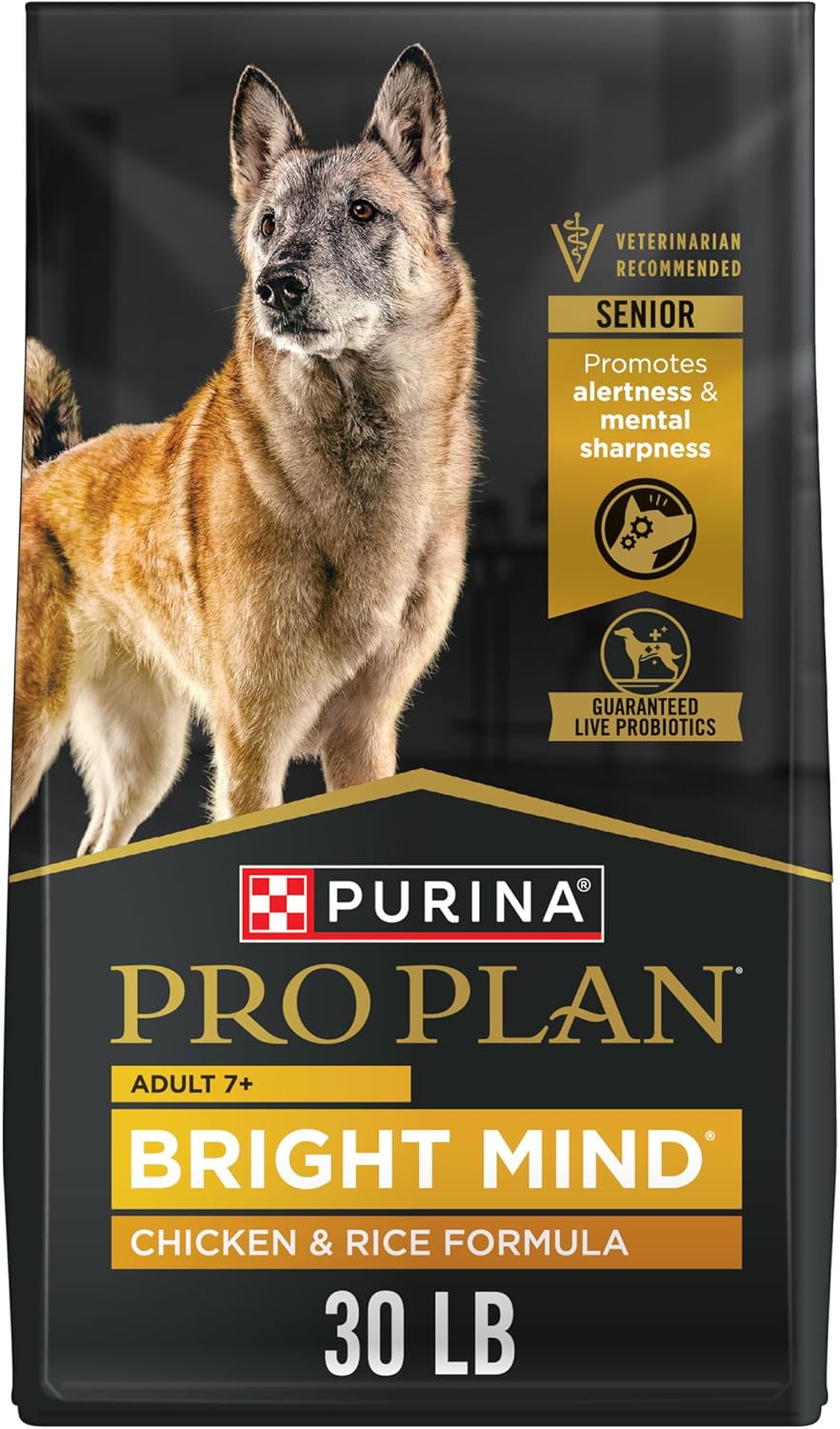
Another excellent option is Purina Pro Plan Bright Mind Adult 7+, which focuses on supporting mental sharpness in aging dogs. This formula includes enhanced botanical oils that provide medium-chain triglycerides (MCTs) to fuel the brain.
What sets this food apart is its dual focus on physical and mental health. Many pet parents report improved memory and increased activity levels after switching to this brand. Check out reviews and purchase information here.
3. Blue Buffalo Wilderness Trailblazer Recipe
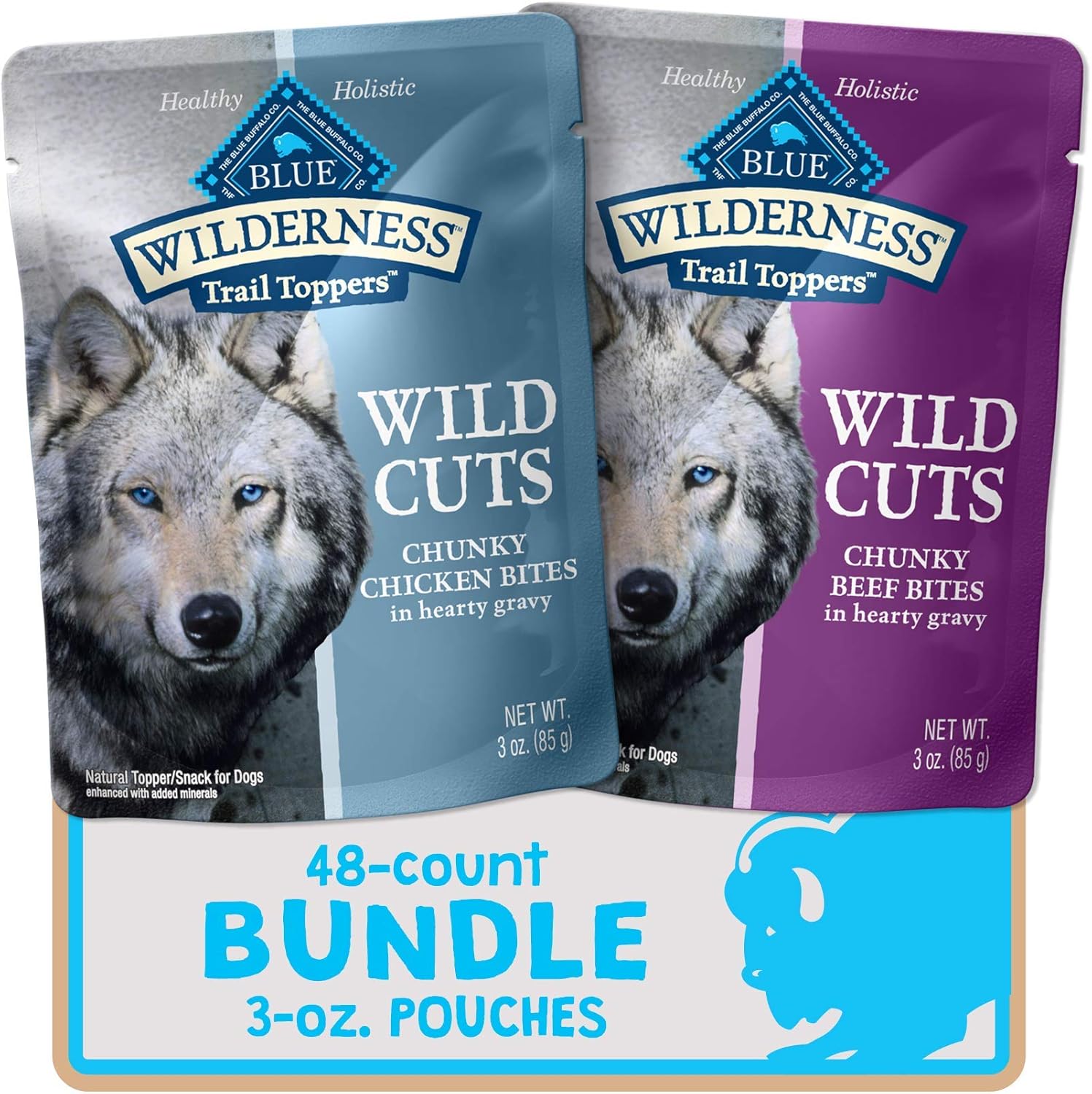
For those who prefer grain-free options, Blue Buffalo Wilderness Trailblazer Recipe is worth considering. Packed with high-quality protein, omega-3 fatty acids, and antioxidants, this food supports both muscle maintenance and brain health.
Sarah, a proud owner of a 10-year-old Labrador named Daisy, swears by this brand. “Daisy used to get lost in our backyard, but since starting this food, she’s much more aware of her surroundings,” she explained. Read more about this recipe here.
How to Choose the Right Food for Your Dog
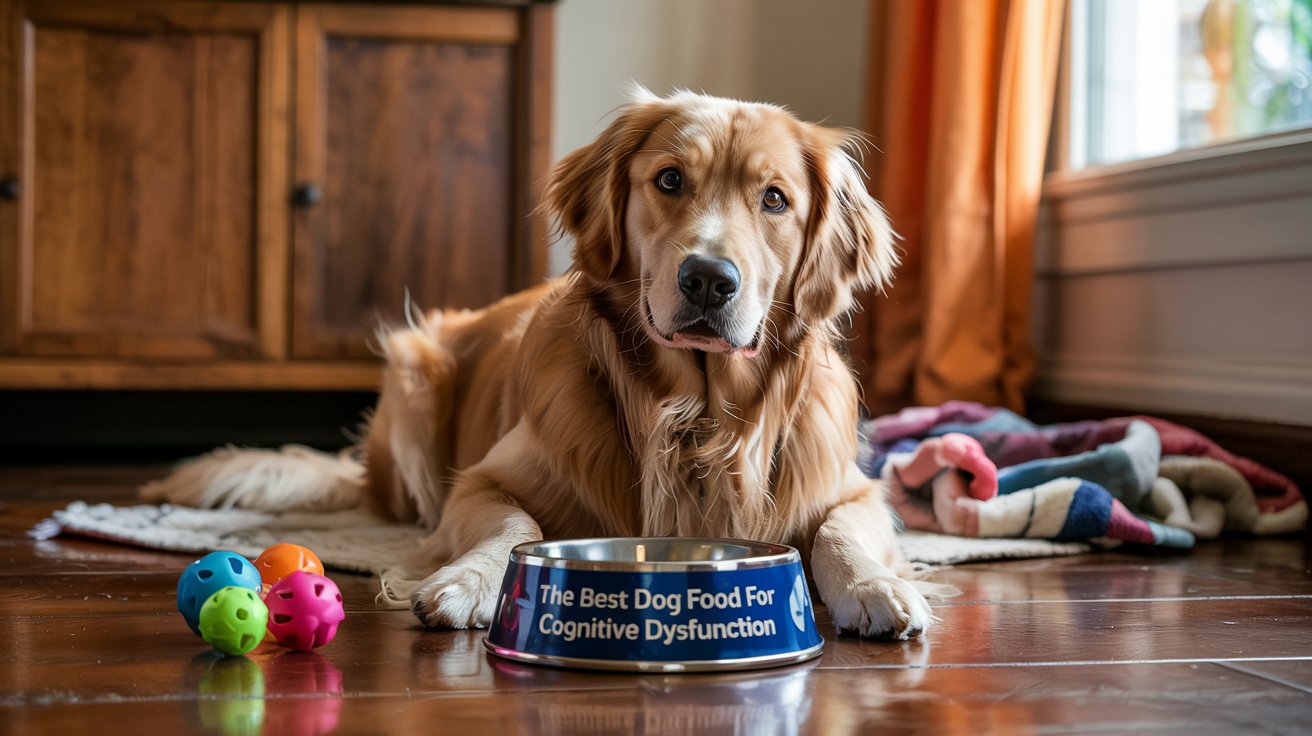
Choosing the best dog food for cognitive dysfunction doesn’t have to be overwhelming. Here’s a step-by-step guide to help you make an informed decision:
Step 1: Consult Your Veterinarian
Before making any changes to your dog’s diet, consult your veterinarian. They can assess your dog’s specific needs and recommend foods tailored to their condition. Some dogs may require prescription diets like Hill’s b/d, while others may benefit from over-the-counter options.
Step 2: Look for Key Ingredients
When shopping for dog food, check the ingredient list for the following:
- Antioxidants: Such as vitamin E, vitamin C, and beta-carotene.
- Omega-3 fatty acids: Often sourced from fish oil or flaxseed.
- MCTs: Typically derived from coconut oil.
- High-quality protein: To maintain muscle mass and overall health.
Step 3: Consider Age and Breed
Different breeds and sizes of dogs age at different rates. For example, smaller breeds tend to live longer than larger ones, so their nutritional needs may vary. Always choose a formula designed for your dog’s age group (e.g., senior formulas for dogs aged 7+).
Step 4: Monitor Your Dog’s Response
After introducing a new food, observe your dog’s behavior and health. Are they more alert? Do they seem less confused? Positive changes indicate that the food is working. If not, don’t hesitate to try another option.
Additional Tips for Managing Cognitive Dysfunction

While diet is crucial, it’s only one piece of the puzzle. Here are some additional strategies to support your dog’s cognitive health:
Mental Stimulation
Engage your dog’s mind with interactive toys, puzzles, and training sessions. Activities like these keep their brain active and reduce boredom.
Regular Exercise
Physical activity boosts blood flow to the brain, promoting better cognitive function. Take your dog for daily walks or play fetch in the backyard.
Routine Veterinary Check-Ups
Regular vet visits ensure that any underlying health issues are addressed promptly. Early detection of cognitive dysfunction allows for timely intervention.
Supplements
In addition to specialized dog food, consider adding supplements like fish oil, coconut oil, or SAMe (S-adenosylmethionine) to your dog’s regimen. These can enhance the benefits of a nutrient-rich diet.
Real-Life Success Stories
Let’s take a moment to hear from real pet parents who’ve seen remarkable improvements in their dogs’ cognitive health through proper nutrition.
Case Study #1: Bella’s Transformation
Bella, a 12-year-old Shih Tzu, was diagnosed with cognitive dysfunction syndrome last year. Her owner, Lisa, decided to switch her to Purina Pro Plan Bright Mind Adult 7+ after consulting her vet. Within weeks, Lisa noticed a significant improvement in Bella’s behavior. “She started recognizing me again and even began playing with her toys,” Lisa shared. “I’m so grateful we found this food.”
Case Study #2: Rocky’s Comeback
Rocky, a 14-year-old German Shepherd, had become increasingly withdrawn and confused. His owner, Mark, tried several diets before settling on Blue Buffalo Wilderness Trailblazer Recipe. “It took a few months, but Rocky is now more engaged and happier than ever,” Mark said. “His eyes light up during our walks, and he remembers tricks I taught him years ago.”
These stories highlight the transformative power of choosing the best dog food for cognitive dysfunction.
FAQs About the Best Dog Food for Cognitive Dysfunction
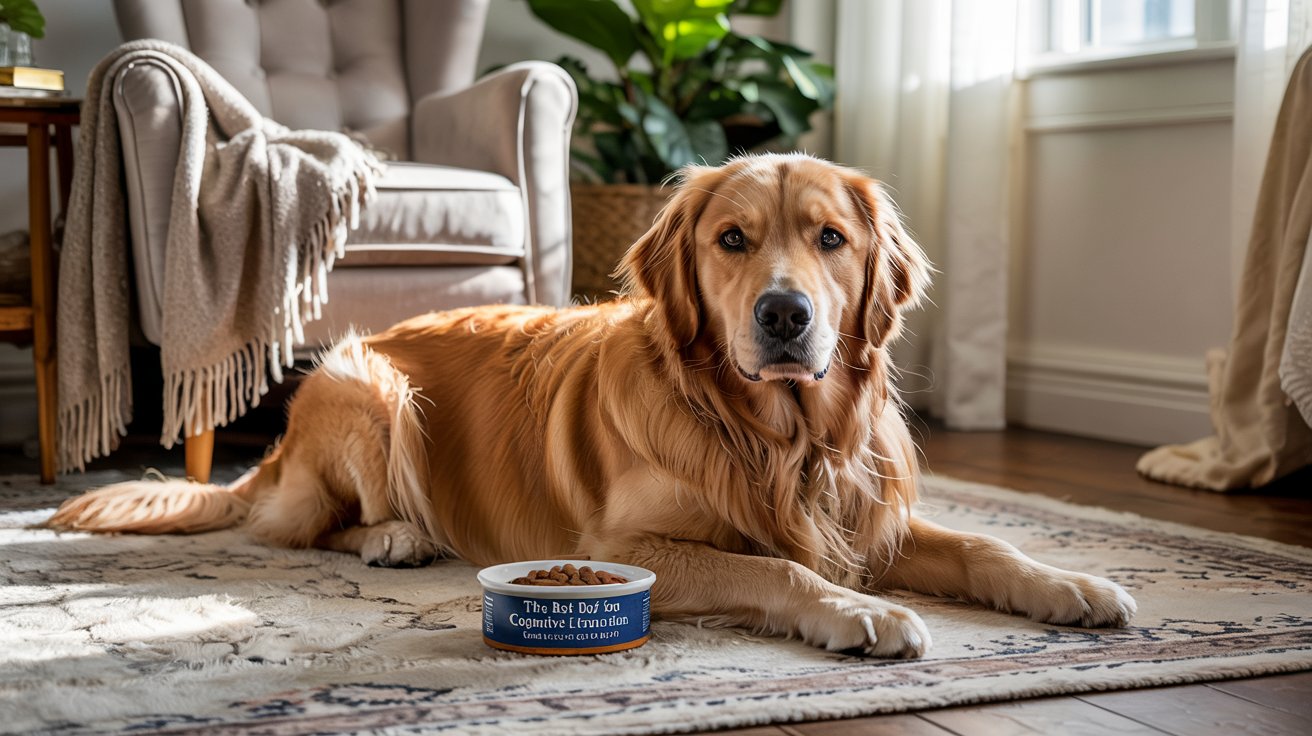
How can dog food help with cognitive dysfunction?
The best dog food for cognitive dysfunction contains ingredients like antioxidants, omega-3 fatty acids, and medium-chain triglycerides (MCTs) that support brain health. Antioxidants combat free radicals that damage brain cells, while omega-3s promote healthy neural pathways. MCTs provide an alternative energy source for the brain, which is especially helpful as older dogs may struggle to process glucose efficiently. These nutrients work together to improve memory, learning, and overall cognitive function.
What are the key ingredients to look for in the best dog food for cognitive dysfunction?
When choosing food for a dog with cognitive dysfunction, look for these essential ingredients:
- Antioxidants: Found in fruits like blueberries and vegetables like spinach.
- Omega-3 Fatty Acids: Sourced from fish oil or flaxseed to support brain health.
- Medium-Chain Triglycerides (MCTs): Often derived from coconut oil for brain energy.
- Vitamins E and C: Combat inflammation and boost immunity.
- L-Carnitine: Helps maintain muscle mass and supports brain function.
For trusted product recommendations, visit Valuedogfood.com.
Is cognitive dysfunction reversible?
While cognitive dysfunction cannot be fully reversed, its progression can be slowed with early intervention. A combination of the best dog food for cognitive dysfunction, supplements, mental stimulation, and veterinary care can significantly improve your dog’s quality of life.
How long does it take to see improvements after switching to the best dog food for cognitive dysfunction?
Every dog is different, but many pet owners report noticeable improvements within 4–8 weeks of transitioning to a nutrient-rich diet. Look for signs like better sleep patterns, increased alertness, improved interaction, and fewer accidents indoors. Consistency is key—stick with the new diet and monitor your dog’s progress closely.
Should I consult my vet before switching my dog’s food?
Absolutely! Before making any dietary changes, it’s crucial to consult your veterinarian. They can confirm whether your dog’s symptoms are due to cognitive dysfunction or another underlying issue. Additionally, your vet may recommend prescription diets or supplements tailored to your dog’s specific needs.
Final Thoughts: Give Your Dog the Gift of Good Health

Watching your dog struggle with cognitive dysfunction can be heartbreaking, but it doesn’t have to define their golden years. With the right combination of nutritious food, mental stimulation, and veterinary care, you can give your furry friend a second lease on life.
Remember, every dog is unique, so take the time to find the perfect match for your companion’s needs. Whether you choose Hill’s Prescription Diet b/d Canine, Purina Pro Plan Bright Mind Adult 7+, or another high-quality option, rest assured that you’re making a positive impact on their well-being.
Ready to take the first step? Visit Valuedogfood.com today to explore our wide selection of premium dog foods and supplements. Your dog deserves nothing less than the best!
By following this comprehensive guide, you’re not only investing in your dog’s cognitive health but also strengthening the bond you share. So go ahead and treat your four-legged family member to the love and care they deserve.



